AIDS Plays Project is bringing forgotten queer theatre back to life

The Project revives work written by queer authors who were lost during the AIDS crisis. The latest, Colm Ó Clúbhán’s Reasons for Staying, is a masterwork of outsider theatre.
Four decades ago, Irish actor Connor Byrne appeared in THE FACE. “Once in 1986, naked – but I was very young and beautiful then,” he says, smiling, “and once in 1988, in a fashion shoot.”
Now, almost four decades later, we’re sitting in hard-backed chairs at London Performance Studios in Peckham, South East London. Connor walks to the stage, his script perched on a music stand. He begins rehearsing lines quietly under his breath, shifting in and out of character as he cracks jokes with the other performers.
These are dress rehearsals for Reasons for Staying, a play by Colm Ó Clúbhán first performed in the year of its leading man’s FACE debut. In his theatre and his life, the Dublin-born writer – who died of AIDS-related illness three years after the play’s debut, aged just 34 – was a radical figure, flaunting his sexuality by wearing badges slapped with phrases like “glad to be gay,” and active as a founding member of the provocative gay theatre troupe the Brixton Faeries. Colm embraced queerness in art and life at a time when it often wasn’t safe to do so, not least due to the mounting hysteria around AIDS.
All of which makes this production of the rarely-performed Reasons for Staying uniquely important: it’s the first time a generation of people will be able to encounter his work.
One of the quintet of actors reviving it, and taking on a role originated by Graham Norton (then going by Graham Walker), Connor plays Martin O’Tyne, a man who left Ireland for England in hopes of a better, freer life.
Reasons For Staying tells the story of five people, most of them Irish expats and most of them strangers, brought together in the back room of a London pub. They share drinks and stories of the complicated relationships they have with England and Ireland, with politics and with the police. These conversations are intercut with fragments of each character being interrogated about a mysterious, possibly politically-motivated act of violence, which bursts to life in the play’s climax. The barbed humour that comes from being a few drinks in is laced with melancholy and a sense of loss – of a homeland, a community.
Colm’s work is the first play in the 2025 season of The AIDS Plays Project, a series of rehearsed readings of work written by queer authors who were lost during the AIDS crisis. The Project has been based in London Performance Studios since their inaugural, September 2023 performance of Charles Ludlam’s gender-bending comedy Camille. Since then, it has staged plays about phone sex (Robert Chesley’s Jerker), camp attacks on heteronormativity (Harry Kondoleon’s Christmas on Mars) and James Kirkwood’s P.S. Your Cat is Dead!, a play described by New York Magazine at the time of its 1975 Broadway premiere as “homosexual wish fulfillment”.
The AIDS Plays Project, though, isn’t about wish fulfillment. It’s about stopping these plays and their authors from being lost to time.
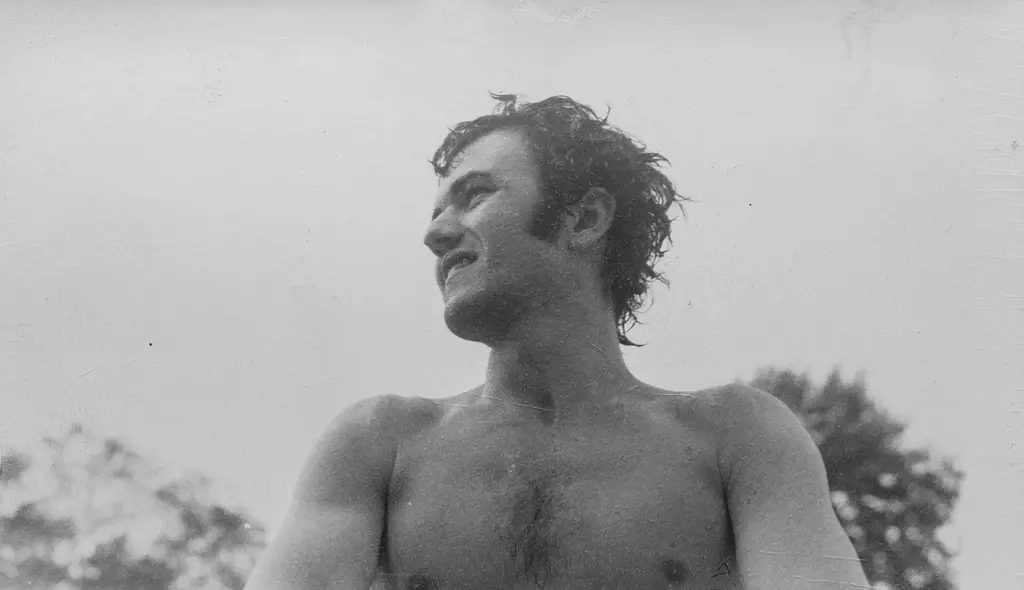
Colm by Mary Evans Young and Derek Evans
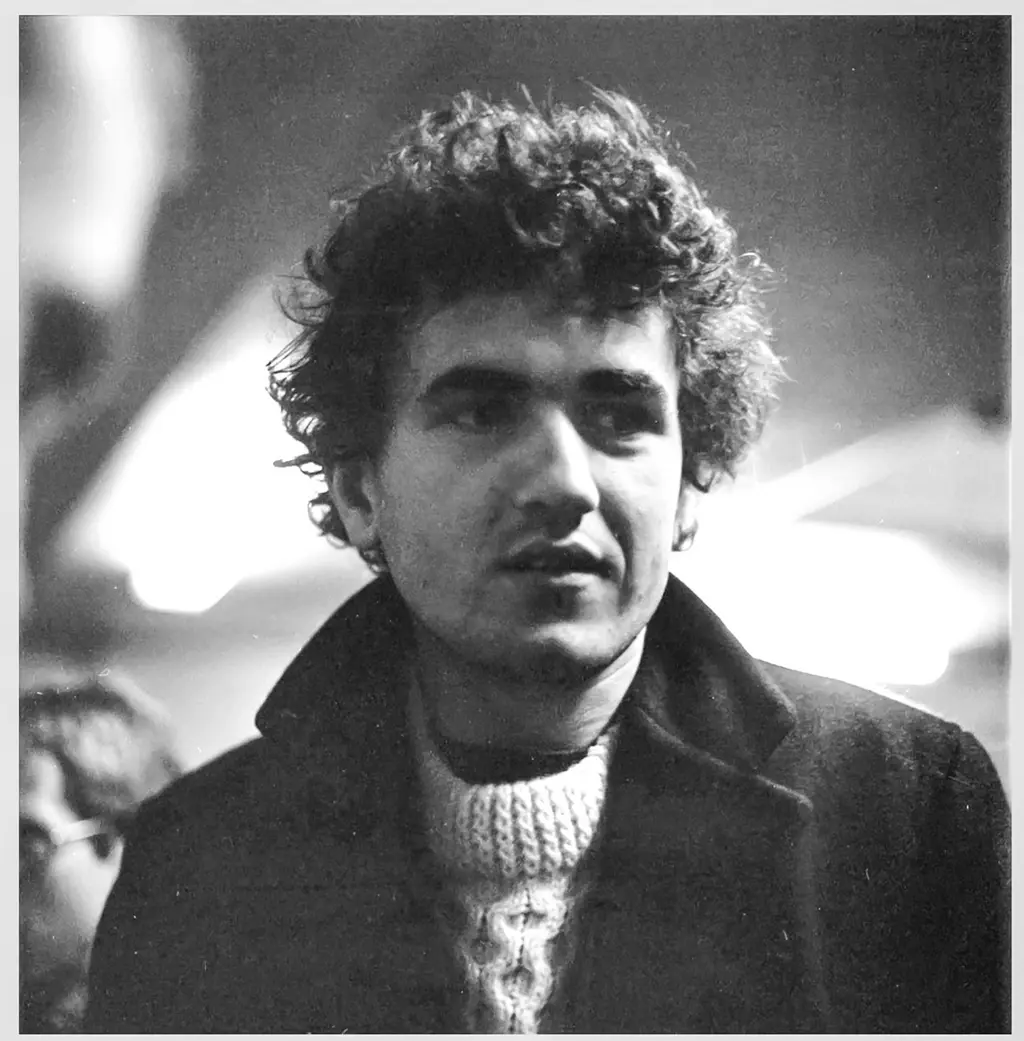
Colm by Mary Evans Young and Derek Evans
At the dress rehearsal, Alastair Curtis, founder of The AIDS Plays Project and its artistic director, stands at the foot of the stage, gathering his cast together. He tells them that this rehearsal will be a journey of “finding the play,” working out the rhythms in the dialogue, where the jokes are and how to bring it to life on stage, even though it’s a rehearsed reading and the cast are performing with scripts in hand. He gives the caveat that the second act might be a little slower because tech timings haven’t been perfected, even for the play’s climax.
The plays put on by the Project, Alastair tells me, are alive in the room. So, too, is the period in time that the Project is designed to reanimate: years of loss that defined so much of the AIDS crisis. For audiences, consequently, these can feel like a kind of communion, a way to reach out to a generation that sometimes feels unmoored.
“The Project has two feet,” Alastair says. “How do you protect and safeguard these writers’ legacies, and how do you represent them as they were? And at the same time, how do we use their plays to inspire queer audiences now?”
I ask if this creates a tendency to be overly reverent of these texts, treating them as historical documents rather than as malleable pieces of art. “You can be reverential to the writer’s intentions,” replies Alastair, “but you can’t be reverential to the text.”
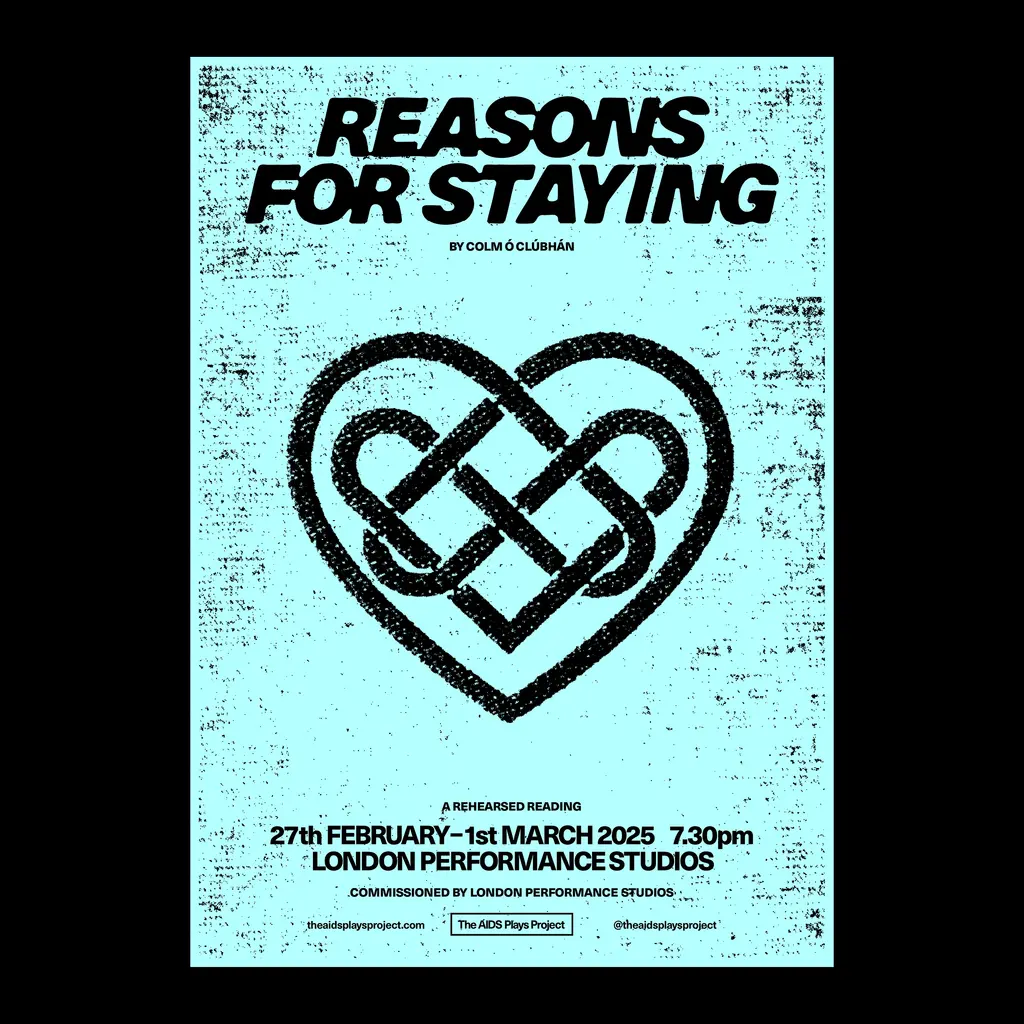
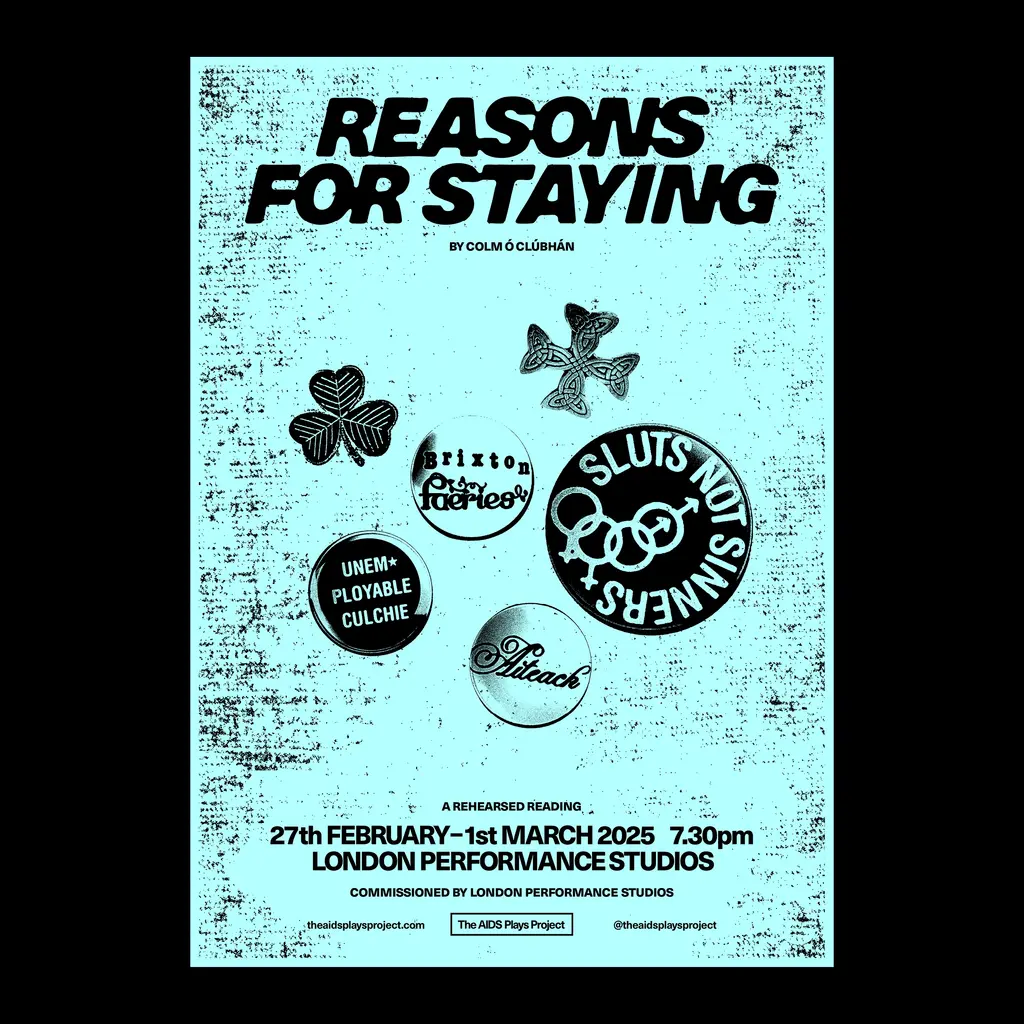
For its author, Reasons for Staying was an attempt to articulate a sense of struggling to belong. Colm’s queerness left him out of place in Ireland, and his republicanism did the same in England. In a diary entry, he wrote: “My writing is a way of exploring the bits in me that I want to know and examine and dig away at and grow. I feel an overpowering identity with the people in my stories.”
Alastair insists that the Project isn’t attempting to be a definitive round-up of AIDS-era theatrical pieces. Not least because “when you see actors running around with scripts in their hands, it’s difficult to see it as definitive,” he says, laughing. Rather, he insists that the idea of a canon, of any spelled-out statement on the merits of particular plays, “exists to obfuscate, press down and rid theatrical culture of plays like these and people like us.”
This is one of the reasons why the plays staged as part of the Project tend towards majority queer casts, as a way of helping broaden not only the definitions of queerness but of queer theatre itself. As a result, the Project is throwing down a gauntlet, a challenge against the “lack of imagination, and a weird moribund sense of what queer theatre should be”.
So the Project broadly, and Reasons For Staying in particular, offer up a kind of queer theatre that’s missing from more mainstream and commercial stages. Alastair hopes these revivals are helping widen the ways in which we define queerness, and with it queer theatre, presenting stories that are by and about outsiders. “Queer writers can’t help but write queer stories,” Alastair says. Even Christmas on Mars a play ostensibly about a straight couple, which he staged in December 2023, is actually a pantomime about heterosexuality.
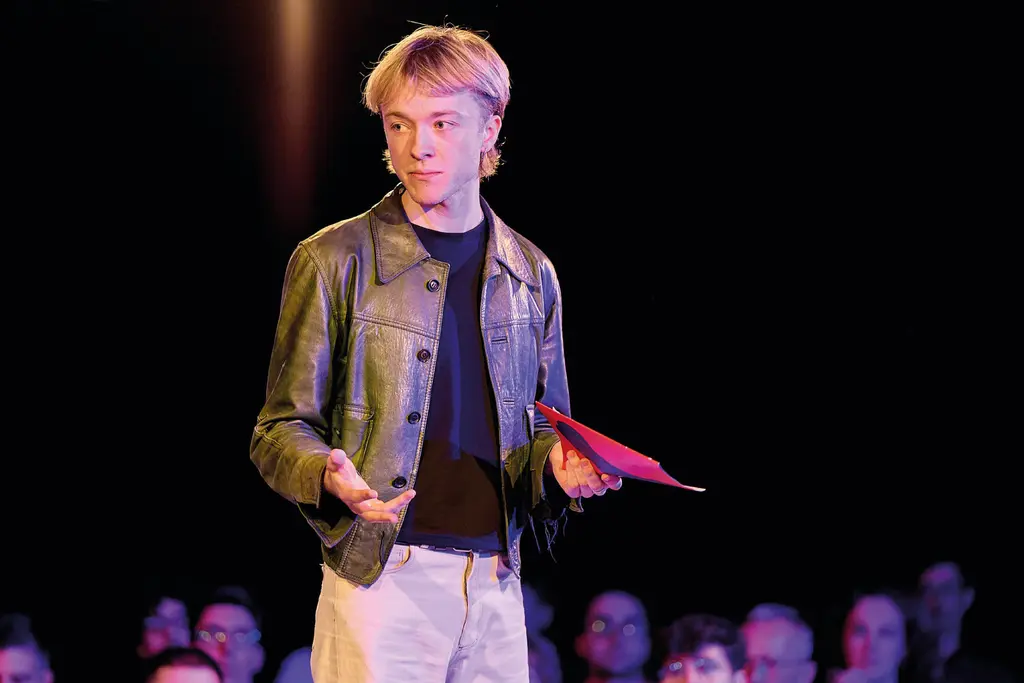
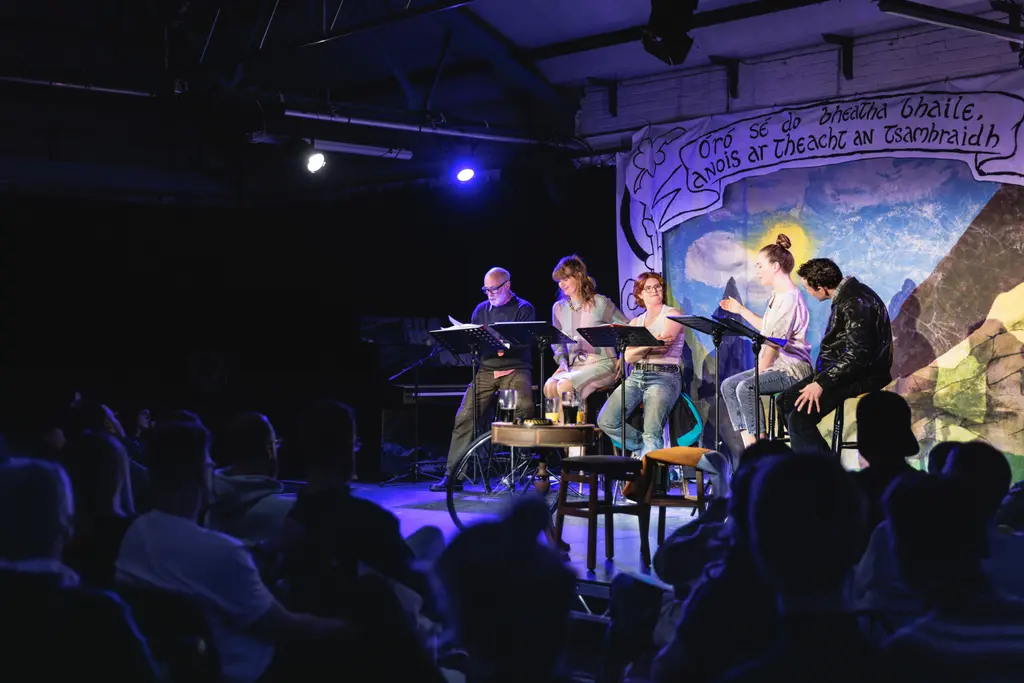
If ever there was a writer who wanted to push up against the limits of what queer theatre could be, it’s Colm Ó Clúbhán. Alongside his work as a playwright, the songs he wrote and performed in the Brixton Faeries were anarchic and funny, offering the possibility of queer liberation with a wink and a nudge, at a time where homosexuality was still a criminal offence in Ireland.
Derek Evans and Mary Evans Young, Colm’s literary executors, worked with Alastair to bring Reasons for Staying back to life. They met Colm through their squatting days in Brixton in the ’70s and attended the closing night of the play along with four original members of the Brixton Faeries: Stephen Gee (the director of the play’s first performance), Ian Townson (who has archived Brixton’s gay history for the website Revolting Gays), John Lloyd and Peter Bradley.
The couple light up when talking about their political awakening back then, the melting pot of people fighting for gay rights, women’s rights and the rights of Black people and people of colour. One of the most popular badges at the time read “how dare you presume I’m heterosexual?”. It creates the image of punk politics, and in living with Colm, Derek and Mary were swept up in it all. “It was a time of magic, really,” Derek says.
This was the first production of Reasons for Staying in decades, but not for lack of trying on Derek and Mary’s part. It’s only now, through the efforts of Alastair – and away from the needs of more commercial theatre – that Colm’s work is able to be revived. This context is vital to Derek, who stresses the importance of the Project not being “beholden to corporate interests”. After Colm passed away in 1989, they tried hard to bring his plays to life, but as Mary puts it, “people didn’t wanna know about AIDS. As soon as we mentioned AIDS, it was taboo.”
This desire to bring queer people in contact with the work and experiences of their generational forebears is an exciting prospect for Mary, Derek and Alastair. To them, one of the most important things about the Project is the ability it grants to work with the friends, lovers and executors of the writers that he platforms. “It’s our greatest joy,” Alastair says. “We get to [work] with people we look up to.”
As a result, The AIDS Plays Project is able to challenge the ways in which we understand and relate to the AIDS crisis. Mary stresses the importance of this intergenerational community. “It’s important for younger people to look around and think: ‘Hey look, they’re still alive and kicking.’”
“We’d be here for ages if we started talking about what’s been lost, it can’t be a list of the dead”
Alastair Curtis, founder of the AIDS Plays Project
Through today’s lens, it’s tempting to think about the AIDS crisis as something defined by all that could have been and wasn’t. The Project works in opposition to this. “We’d be here for ages if we started talking about what’s been lost, it can’t be a list of the dead,” Alastair says. Instead, he’s spurred on by the need to fill in the gaps that exist in both gay history and the theatrical landscape.
The front cover of the programme for The AIDS Plays Project rendition of Reasons for Staying is a picture of Colm Ó Clúbhán. He’s shirtless, looking into the horizon with windswept hair. On the back is a declaration, a line spoken by one of his characters, Cormac: “THE WORD IS GAY, AND YES, I AM,” in block capitals. This defiant declaration, and the play itself, is a riposte to historical erasure. There’s an urgency to it. Alastair sees collaborating with Derek and Mary as having an almost existential importance: “If we don’t do it now, then the people who teach us about Colm and this play might not be around for the next reading.” It’s been 40 years since Reasons For Staying was first performed. If we have to wait another 40 for it to be performed again, then our culture, history and theatres will be all the poorer for it.
The AIDS Plays Project will be returning to London Performance Studios in September for another season of readings, which will include the world premiere of Alan Bowne’s Spook, – funnily enough, 40 years after it was originally written – about two cousins and their local minister vying for the attention of a bisexual, 19th century ghost. Can’t wait.







